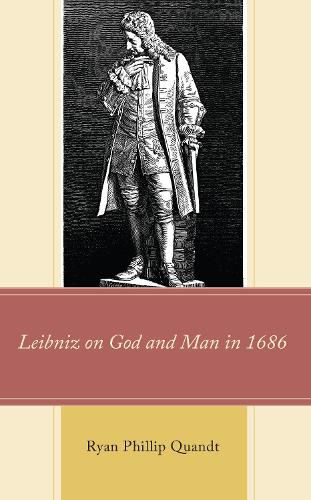Readings Newsletter
Become a Readings Member to make your shopping experience even easier.
Sign in or sign up for free!
You’re not far away from qualifying for FREE standard shipping within Australia
You’ve qualified for FREE standard shipping within Australia
The cart is loading…






G. W. Leibniz's "Discourse on Metaphysics" is viewed by many scholars as a milestone of his mature thought-his first attempt to systematize various stances. A lengthier, theological work, "Examination of the Christian Religion," written a few months after, receives less press. While Leibniz's intent for writing the theological piece may be left for speculation, Leibniz on God and Man in 1686 demonstrates that there is clear overlap between these two texts. Leibniz borrows from the metaphysics and physics of "Discourse" in his theology, and he writes that his metaphysical tract addresses "questions on grace, God's concourse with creatures, the nature of miracles, the cause of sin and the origin of evil, the immortality of the soul, ideas, etc." Despite challenges for drawing them close, Ryan Phillip Quandt argues that these texts converge in the moral quality of God and man that Leibniz took as the cornerstone of his system in 1686. "Discourse" coheres in a moral and scientific vision, while
$9.00 standard shipping within Australia
FREE standard shipping within Australia for orders over $100.00
Express & International shipping calculated at checkout
G. W. Leibniz's "Discourse on Metaphysics" is viewed by many scholars as a milestone of his mature thought-his first attempt to systematize various stances. A lengthier, theological work, "Examination of the Christian Religion," written a few months after, receives less press. While Leibniz's intent for writing the theological piece may be left for speculation, Leibniz on God and Man in 1686 demonstrates that there is clear overlap between these two texts. Leibniz borrows from the metaphysics and physics of "Discourse" in his theology, and he writes that his metaphysical tract addresses "questions on grace, God's concourse with creatures, the nature of miracles, the cause of sin and the origin of evil, the immortality of the soul, ideas, etc." Despite challenges for drawing them close, Ryan Phillip Quandt argues that these texts converge in the moral quality of God and man that Leibniz took as the cornerstone of his system in 1686. "Discourse" coheres in a moral and scientific vision, while